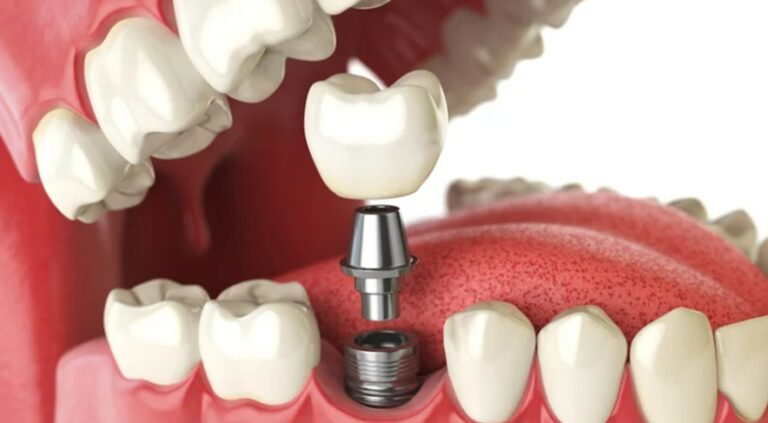Addiction recovery is a complex and deeply personal journey that millions of individuals navigate each year. While everyone’s path to sobriety is unique, researchers and addiction specialists have identified five distinct stages that most people experience during their recovery process: precontemplation, contemplation, preparation, action, and maintenance.
Understanding these stages not only helps those struggling with addiction to recognize their own progress but also enables healthcare providers and support systems to offer more targeted and effective assistance.
The progression through these stages rarely follows a linear path, and individuals often move back and forth between them before achieving lasting recovery. Each stage represents a specific mindset and set of challenges, from the initial denial and resistance of precontemplation to the active behavior changes of the action stage, and finally to the long-term commitment required during maintenance.
This framework, first developed by Prochaska and DiClemente in the 1970s, has become an essential tool for understanding the psychological processes involved in overcoming addiction and implementing successful treatment strategies.
1. Precontemplation
In the precontemplation stage, individuals often don’t recognize that their addiction is a problem. They might be in denial, unaware of how their actions affect them and those around them. Whether it’s excessive drinking or a reliance on drugs, people at this stage focus on the positives of their behavior rather than the negatives. They’re not ready to make changes and might not even see the need for help, which can be tough for family and friends.
Characteristics of Precontemplation
- Denial and Defensiveness: People in this stage often deny the extent of their addiction. They might get defensive if someone suggests they have a problem.
- Justification of Behavior: There’s a tendency to justify their substance use, focusing on the perceived benefits.
- Lack of Insight: They might lack awareness of the negative impacts of their addiction, both personally and socially.
Challenges in This Stage
- Resistance to Change: Individuals are not open to discussing their addiction or considering change.
- Impact on Relationships: This stage can strain relationships with loved ones who are concerned about the individual’s health and well-being.
- Information Deficit: A lack of understanding about the dangers of addiction can keep someone stuck in this stage.
Moving Forward
Organizations like Serenity at Summit and American Addiction Centers emphasize the importance of gentle, informed conversations to help individuals in the precontemplation stage. It’s crucial to approach them with empathy and patience, providing information without pressure. Interventions might be necessary, but they should be conducted with care to avoid pushing them further into denial. Understanding and support from loved ones can eventually guide them toward recognizing the need for change.
2. Contemplation
In the contemplation stage, individuals start to entertain the idea that their addiction might be an issue. It’s a period of reflection where they weigh the pros and cons of changing their behavior. This stage often involves a lot of internal dialogue, where the person acknowledges the potential benefits of sobriety but also clings to the perceived positives of their current habits.
People in this phase might think about making changes, but they aren’t quite ready to take action. They might discuss their thoughts with close friends or family, or they may keep their struggles private. This stage can last for months, as they oscillate between the desire to change and the comfort of the familiar.
Signs of Contemplation
- Open to Information: They start being receptive to information about the harms of their addiction.
- Considering Change: They think about cutting back or moderating their use but aren’t committed to a plan.
- Ambivalence: They feel torn between wanting to change and fearing the unknown that change brings.
During this stage, it’s beneficial for loved ones and professionals, such as those at an Addiction Center, to provide support without judgment. Encouragement to explore the benefits of treatment and the potential for a healthier lifestyle can be crucial. However, it’s important to avoid pushing too hard, as the decision to move forward with recovery needs to come from the individual themselves.
Understanding the contemplation stage is vital, as it sets the groundwork for future changes. It’s the mental preparation needed before any real action can be taken. Recognizing this stage for what it is—a time of internal conflict and reflection—can help guide individuals toward the next steps in their recovery journey.
3. Preparation
The preparation stage marks a significant turning point in the journey of addiction recovery. It’s often called the ‘determination’ stage because individuals have decided to make a change and are ready to take action soon. This phase is crucial as it bridges the gap between merely thinking about change and actually stepping into action.
During this stage, individuals are often highly motivated and begin to lay down concrete plans to alter their substance use. Loved ones can play a vital role in this phase by offering support and helping to organize resources. Here’s what typically happens in the preparation stage:
- Setting Goals: Individuals start setting clear, achievable goals, like reducing substance use or quitting altogether. They may write down these goals to have a tangible plan to follow.
- Gathering Resources: This might include obtaining tools such as nicotine patches or medications for treatment. Facilities like Harmony Ridge Recovery and Evoke Wellness Center can provide essential resources and guidance.
- Identifying Triggers: Understanding what triggers the urge to use substances is crucial. Individuals often work on removing these triggers from their environment, like getting rid of alcohol at home or avoiding places and people associated with substance use.
- Building a Support System: Creating a network of supportive friends, family, or even joining support groups can be incredibly beneficial. This support system acts as a safety net, offering encouragement and accountability.
- Scheduling Treatment: Many individuals at this stage will schedule appointments for detox or rehab programs. They might also start therapy sessions to address underlying issues related to their addiction.
The preparation stage is all about gearing up for change. It’s about planning and getting ready to step into the next phase of recovery. With the right mindset and support, individuals can move forward confidently, knowing they have a solid foundation to build upon. This stage, although challenging, sets the stage for a successful transition into the action phase, where real change begins to unfold.
4. Action
In the action stage, individuals are no longer just thinking about change—they are actively doing something about their addiction. This is the phase where all the planning and preparation start to pay off. People in this stage have recognized their problem and have taken concrete steps to address it. It’s a challenging time, but also a period of significant transformation.
Key Features of the Action Stage
- Entering Treatment: Many individuals choose to enter a rehab program or seek professional therapy. This could involve checking into a residential facility, attending outpatient sessions, or participating in detox programs. The Addiction Group often recommends tailored treatment plans that suit each person’s unique needs.
- Developing Coping Strategies: Learning how to handle stress without turning to substances is crucial. This might involve attending therapy sessions, joining support groups, or engaging in activities that promote mental health, like meditation or exercise.
- Building a Support Network: Having a strong support system is vital during the action stage. This includes friends, family, and possibly sponsors or mentors from support groups. They provide encouragement and accountability, helping to maintain focus on recovery goals.
- Avoiding Triggers: Actively steering clear of environments or people that might lead to relapse is essential. This might mean avoiding certain social situations or making lifestyle changes to support sobriety.
- Monitoring Progress: Regularly checking in on progress helps individuals stay on track. This could involve journaling, setting short-term goals, or having regular check-ins with a therapist or support group.
The action stage is about more than just stopping the use of substances; it’s about creating a new way of living. It’s a tough journey, but with determination and the right support, many find it to be a time of growth and healing. For those in this stage, The Addiction Group emphasizes the importance of personalized care and continuous support to navigate the challenges and celebrate the victories of recovery.
5. Maintenance
The maintenance stage is where the rubber meets the road in addiction recovery. It’s not just about staying sober; it’s about building a life that supports that sobriety. This stage can last anywhere from six months to a lifetime, depending on the person and their circumstances.
People in this stage have usually been abstinent for some time and are now focused on maintaining the changes they’ve made. They’re actively working to prevent relapse by using the strategies they’ve learned during treatment. This can involve a mix of ongoing therapy, support groups, and personal development activities.
Key Components of the Maintenance Stage:
- Continued Abstinence: Staying away from alcohol and drugs is a must. This involves avoiding triggers and situations that might lead to relapse.
- Aftercare Participation: Engaging in aftercare programs like those offered at Blackbear Rehab is crucial. These programs provide ongoing support and guidance.
- Lifestyle Adjustments: Embracing a healthier lifestyle, which might include regular exercise, proper nutrition, and sufficient sleep, helps in maintaining sobriety.
- Building a Support Network: Having a strong support system of friends, family, and peers who understand the journey is invaluable.
- Regular Self-Reflection: Periodically assessing one’s progress and challenges helps in staying on track.
It’s important to remember that relapse doesn’t mean failure. It’s a common part of the process, and what matters is how one responds to it. With the right support and mindset, individuals can return to their recovery path. Blackbear Rehab and similar facilities offer resources and programs to help maintain these positive changes.



